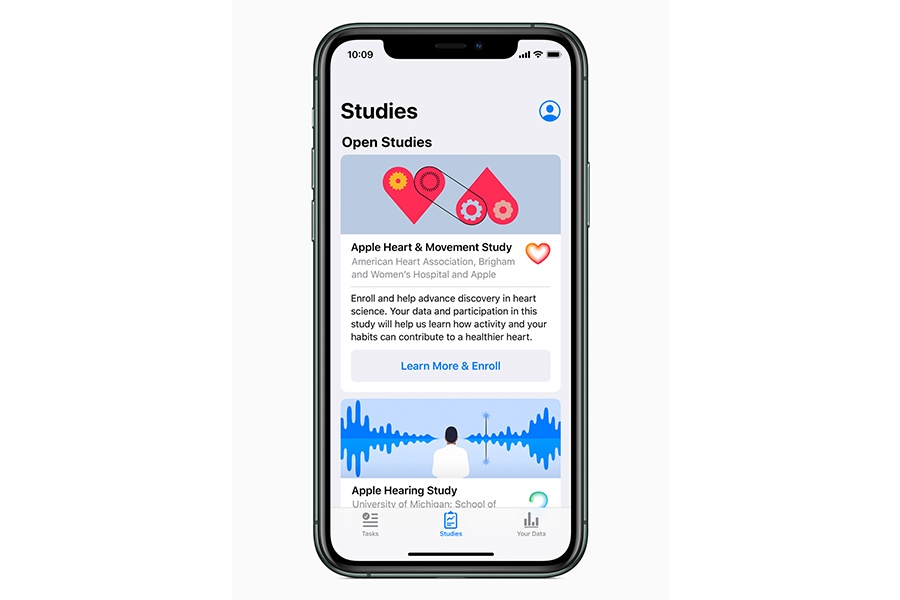If You Own an Apple Watch, You Can Help the Brigham Study Heart Health
Apple and Brigham and Women's Hospital are partnering in a study exploring the connection between movement and heart health.

Photo courtesy Apple
Whether you have one or not, wearable technology, from watches to bands to adhesive patches, has inundated the fitness market. Allowing users to clearly see how many steps they’ve taken, calories they’ve burned, and the quality of the sleep they get at night the tech is useful, but is it always accurate?
To answer this question, and to further explore the possibilities of wearable technology for preventing things like heart disease, Apple is partnering with Brigham and Women’s Hospital and a Harvard Medical School affiliate to examine women’s health, movement and heart health, and hearing.
Anyone who owns an iPhone or Apple watch can take part in the study, which simply requires downloading the Research app through the App Store.
Back in March, Stanford and Apple released the findings of a similar heart study in which the two collaborated to evaluate wearable technology’s ability to detect irregular heart rhythm. The study, which enrolled over 400,000 participants from all 50 states over eight months, was able to quantify the effectiveness of the technology and its potential impact on healthcare.
The study found that the detection software used to detect irregular heartbeats in the watch is correct 71 percent of the time. It also found that 57 percent of people who received irregular pulse notifications sought medical attention.
“With the Apple Heart Study, we found that we could positively impact medical research in ways that help patients today and that make contributions that will benefit future generations,” Jeff Williams, Apple’s chief operating officer, said in a release.
The first of the Brigham studies to be conducted includes a women’s health study to focus on menstrual cycles and gynecological conditions. The heart and movement study will look at how everyday activities (like walking and climbing stairs) impact falls, heart health, and quality of life. And the hearing study will collect data to understand how exposures to sound over time impact hearing.
If you’re interested in participating in any of the studies, you can download the Research app for free and begin following the prompts for each task. For those worried about sharing confidential medical information on your device, the program ensures the data is encrypted if you have a passcode set. But if you change your mind, you can drop out of the study at any time.

Photo courtesy Apple

